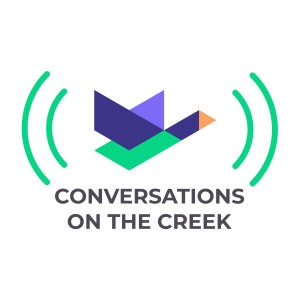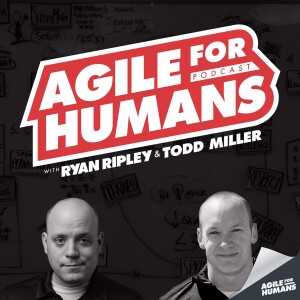
- Podcast Features
-
Monetization
-
Ads Marketplace
Join Ads Marketplace to earn through podcast sponsorships.
-
PodAds
Manage your ads with dynamic ad insertion capability.
-
Apple Podcasts Subscriptions Integration
Monetize with Apple Podcasts Subscriptions via Podbean.
-
Live Streaming
Earn rewards and recurring income from Fan Club membership.
-
Ads Marketplace
- Podbean App
-
Help and Support
-
Help Center
Get the answers and support you need.
-
Podbean Academy
Resources and guides to launch, grow, and monetize podcast.
-
Podbean Blog
Stay updated with the latest podcasting tips and trends.
-
What’s New
Check out our newest and recently released features!
-
Podcasting Smarter
Podcast interviews, best practices, and helpful tips.
-
Help Center
-
Popular Topics
-
How to Start a Podcast
The step-by-step guide to start your own podcast.
-
How to Start a Live Podcast
Create the best live podcast and engage your audience.
-
How to Monetize a Podcast
Tips on making the decision to monetize your podcast.
-
How to Promote Your Podcast
The best ways to get more eyes and ears on your podcast.
-
Podcast Advertising 101
Everything you need to know about podcast advertising.
-
Mobile Podcast Recording Guide
The ultimate guide to recording a podcast on your phone.
-
How to Use Group Recording
Steps to set up and use group recording in the Podbean app.
-
How to Start a Podcast
-
Podcasting
- Podcast Features
-
Monetization
-
Ads Marketplace
Join Ads Marketplace to earn through podcast sponsorships.
-
PodAds
Manage your ads with dynamic ad insertion capability.
-
Apple Podcasts Subscriptions Integration
Monetize with Apple Podcasts Subscriptions via Podbean.
-
Live Streaming
Earn rewards and recurring income from Fan Club membership.
-
Ads Marketplace
- Podbean App
- Advertisers
- Enterprise
- Pricing
-
Resources
-
Help and Support
-
Help Center
Get the answers and support you need.
-
Podbean Academy
Resources and guides to launch, grow, and monetize podcast.
-
Podbean Blog
Stay updated with the latest podcasting tips and trends.
-
What’s New
Check out our newest and recently released features!
-
Podcasting Smarter
Podcast interviews, best practices, and helpful tips.
-
Help Center
-
Popular Topics
-
How to Start a Podcast
The step-by-step guide to start your own podcast.
-
How to Start a Live Podcast
Create the best live podcast and engage your audience.
-
How to Monetize a Podcast
Tips on making the decision to monetize your podcast.
-
How to Promote Your Podcast
The best ways to get more eyes and ears on your podcast.
-
Podcast Advertising 101
Everything you need to know about podcast advertising.
-
Mobile Podcast Recording Guide
The ultimate guide to recording a podcast on your phone.
-
How to Use Group Recording
Steps to set up and use group recording in the Podbean app.
-
How to Start a Podcast
-
Help and Support
- Discover
Ryan and Todd look back at a 2006 post by Ken Schwaber, which covers 15 ways Scrum is both hard and disruptive.
The fourteenth statement from Ken:
"A team consists of people under pressure to do their best. Conflict is natural and the team needs to know how to deal with the conflict and have resources to draw on when needed."
Natural Conflict in Teams: The episode discusses how conflict is a natural occurrence in teams, especially under pressure. This pressure can be constructive and lead to better performance if it's oriented towards clear goals, such as achieving Sprint and product goals in Scrum.
Healthy vs. Unhealthy Conflict: They emphasize the difference between healthy and unhealthy conflict. Healthy conflict focuses on problem-solving and can be beneficial, while unhealthy conflict, which can escalate to personal fights, is detrimental. The key is to maintain focus on solving problems, not winning arguments.
Role of Scrum Values in Managing Conflict: Scrum values like commitment are highlighted in managing conflict. These values support positive, natural conflict oriented towards team goals and problem-solving instead of destructive fights.
Team Dynamics and Conflict Resolution: The hosts discuss the importance of recognizing when a discussion is veering away from productive conflict and turning into a personal fight. They stress the importance of team members being able to intervene, reset the focus on the problem, and avoid stubbornness in pursuit of being right.
Balance Between Agreement and Conflict: They conclude that while conflict is necessary for progress, it needs to be balanced. Neither constant agreement nor continuous fighting is beneficial. A good Scrum Master, product owner, or team member should help maintain this balance, encouraging healthy conflict while preventing fights.
👉 Follow our journey through all 15 insights in Ken Schwaber's white paper, revealing the enduring relevance of Scrum principles.
💬 Share your perspectives in the comments and remember to like and subscribe for more in-depth Scrum discussions. 🔔
🔗 Here is the original white paper: https://www.verheulconsultants.nl/ScrumIsHardandDisruptive.pdf
🔗 Join Ryan & Todd's Scrum.org course: https://buytickets.at/agileforhumansllc
Explore more:
📖 "Unlocking Business Agility with Evidence-Based Management: Satisfy Customers and Improve Organizational Effectiveness" on Amazon -- https://amzn.to/4690qJy
📖 "Fixing Your Scrum: Practical Solutions to Common Scrum Problems" on Amazon -- https://amzn.to/46dAQTC
✅ Subscribe to this channel for Agile, Scrum, and Kanban insights: https://www.youtube.com/agileforhumans?sub_confirmation=1
- 🌐 Connect with Agile for Humans:
- 📘 Website - https://agileforhumans.com/
- 🐦 Twitter - https://twitter.com/agileforhumans
- 🔗 LinkedIn - https://www.linkedin.com/company/agile-for-humans-llc
- 🔍 The Evidence-Based Company - https://theevidencebasedcompany.com/
- 📧 Email - ryan@agileforhumans.com
Learn more about your ad choices. Visit megaphone.fm/adchoices
More Episodes
TOP 10 REWIND: Does a Scrum Master Need Technical Skills?
 2022-08-12
2022-08-12
TOP 10 REWIND: What Does a Scrum Master Do with a Quiet Team?
 2022-08-12
2022-08-12
TOP 10 REWIND: What Does a Scrum Master Do All Day?
 2022-08-12
2022-08-12
YDS: Where Are All of the Scrum Sprint Review Formats?
 2022-08-12
2022-08-12
Top 10 Rewind: What Does a Scrum Master Do on Day 1?
 2022-08-12
2022-08-12
YDS: How Empowered is Your Product Owner?
 2022-08-12
2022-08-12
TOP 10 REWIND: Should a Scrum Team Use Story Points?
 2022-08-12
2022-08-12
YDS: How Much Time Does Your Scrum Team Spend on Refinement?
 2022-08-12
2022-08-12
YDS: Why is Your Scrum Teams Sprint Review So Terrible?
 2022-08-12
2022-08-12
YDS: What Equipment is Essential for Remote Work?
 2022-08-12
2022-08-12
YDS: Sustainable Pace and Taking a Break
 2022-07-05
2022-07-05
YDS: Why Can't a Product Owner Release Untested Products?
 2022-06-03
2022-06-03
YDS: Does Agile Work on Big Projects or Just Short Projects?
 2022-06-02
2022-06-02
YDS: Which Scrum Master Stance Do You Use the Most?
 2022-06-01
2022-06-01
YDS: Does Your Management and Leadership Team Support
 2022-05-31
2022-05-31
YDS: How Does a Product Owner Order a Product Backlog?
 2022-05-26
2022-05-26
YDS: Does a Self-Managing Scrum Team Need a Scrum Master?
 2022-05-25
2022-05-25
YDS: How Can a Non-Technical Scrum Master Remove
 2022-05-24
2022-05-24
YDS: What Does it Mean that a Scrum Team is Self-Managing?
 2022-05-23
2022-05-23
YDS: When Do You Split a Scrum Team?
 2022-05-20
2022-05-20
Create your
podcast in
minutes
- Full-featured podcast site
- Unlimited storage and bandwidth
- Comprehensive podcast stats
- Distribute to Apple Podcasts, Spotify, and more
- Make money with your podcast
It is Free
You may also like

Ham Radio Crash Course Podcast


Zero-Shot


Conversations on the Creek


Elliot in the Morning


Lex Fridman Podcast


- Privacy Policy
- Cookie Policy
- Terms of Use
- Consent Preferences
- Copyright © 2015-2025 Podbean.com

 iOS
iOS Android
Android